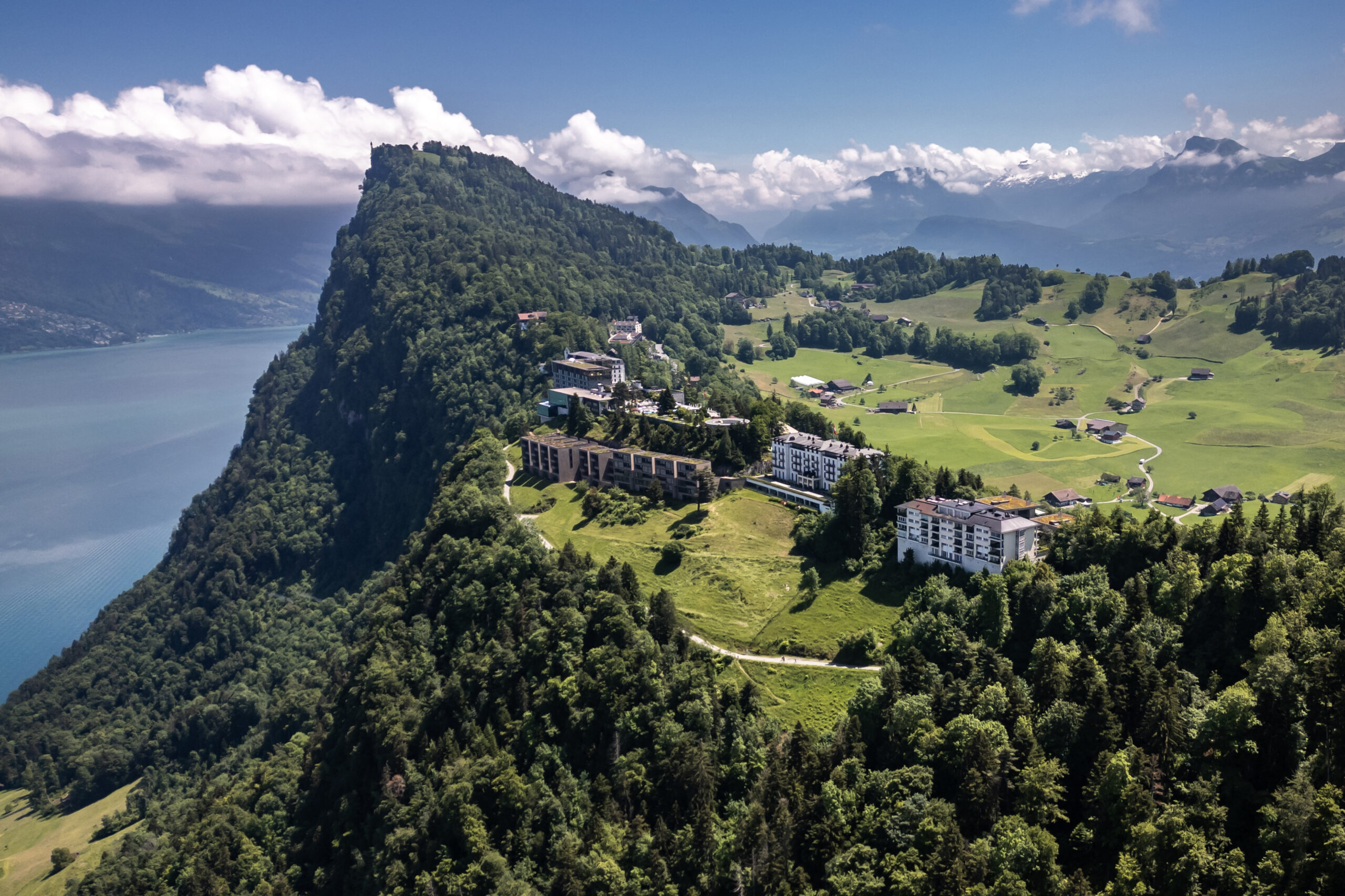
This aerial photograph taken on June 4, 2024, shows the luxury Burgenstock resort above Lake Lucerne, central Switzerland that will host a Ukraine peace summit on June 15-16, 2024. On June 15 and 16, 2024, Switzerland organises a Summit on Peace in Ukraine at the Burgenstock (Canton of Nidwalden) with world leaders set to discuss how to get to an eventual peace process, though Russia is not taking part, on June 10, 2024. Agence France-Presse
GENEVA — Ahead of the first summit on peace in Ukraine, Kyiv said Tuesday it wanted Russia to attend a second summit, to receive an internationally agreed roadmap towards ending the conflict.
Moscow said it had no interest in joining this weekend’s meeting and so was not invited by hosts Switzerland, while Ukraine wants to get some concrete outcomes from the meeting to take forward to a second summit.
Andriy Yermak, the head of Ukrainian President Volodymyr Zelensky’s office, said the “bad experience” of previous negotiation formats involving Moscow, prior to Russia’s full-scale invasion of Ukraine in February 2022, meant that the end to the war needed to be built on a broad platform of support from the outset — and be rooted in international law.
READ: Swiss summit on Ukraine set to thrash out path to peace
“For the second summit, we will be working with all colleagues, with all countries who will be interested to be involved,” Yermak told European media organizations, via video link from Berlin.
“We are planning to prepare together the joint plan which will be supported by all these responsible countries. And we’re looking for the possibility, in the second summit, to invite a representative of Russia, and together present this joint plan.”
A perspective backed by “100 or more countries” drawn from every continent, rather than just Ukraine’s position, “will be a real plan which will be very difficult to dispute… a real road map how to stop this war and how to settle the crisis”.
Summit ‘already a success’
On Monday, Swiss President Viola Amherd said the summit aimed to find paths towards a comprehensive, just and lasting peace for Ukraine, based on international law, and define a framework for involving both warring parties in a future peace process.
More than 160 countries and international organizations were invited by Switzerland to the two-day summit at the Burgenstock resort complex, with more than 90 confirmations received so far.
READ: Marcos skipping Ukraine Peace Summit, Galvez to attend
Roughly half will be represented by the heads of state or government, and roughly half are from Europe.
“We think it’s already a success because it’s a big number of countries” attending, and “from all continents”, said Yermak.
He said Ukraine was “open to discuss all ideas” from attending countries if they could help to stop the war.
“We want our lands liberated, we want back our people, our children, and we want justice,” Yermak said.
Door open for China
Of Russia’s allies, China is staying away, while Brazil and South Africa also seem likely to be absent.
“We know how hard Russia is working against this summit,” trying to dissuade countries from attending, said Yermak.
“If Russia is so nervous, it’s confirmation that we are on the right way,” he said, still hoping that some wavering nations will eventually attend.
“We are ready to listen to the position of China,” said Yermak, hoping they would join the process sooner rather than later.
Just as it is for Ukraine, “for China, territorial integrity is important. Nuclear safety is important”, he added.
“They have some days to change this position. We will be happy if a high-level representative of China will be in Switzerland,” he said.
“If not, we will continue to work with China and try to do the best from our side that they will appear at the second summit.”
Yermak said that if the war in Ukraine could be ended, it would show that “world leaders are really able, together, to settle such a serious problem”, which could lay a template for resolving future conflicts.

